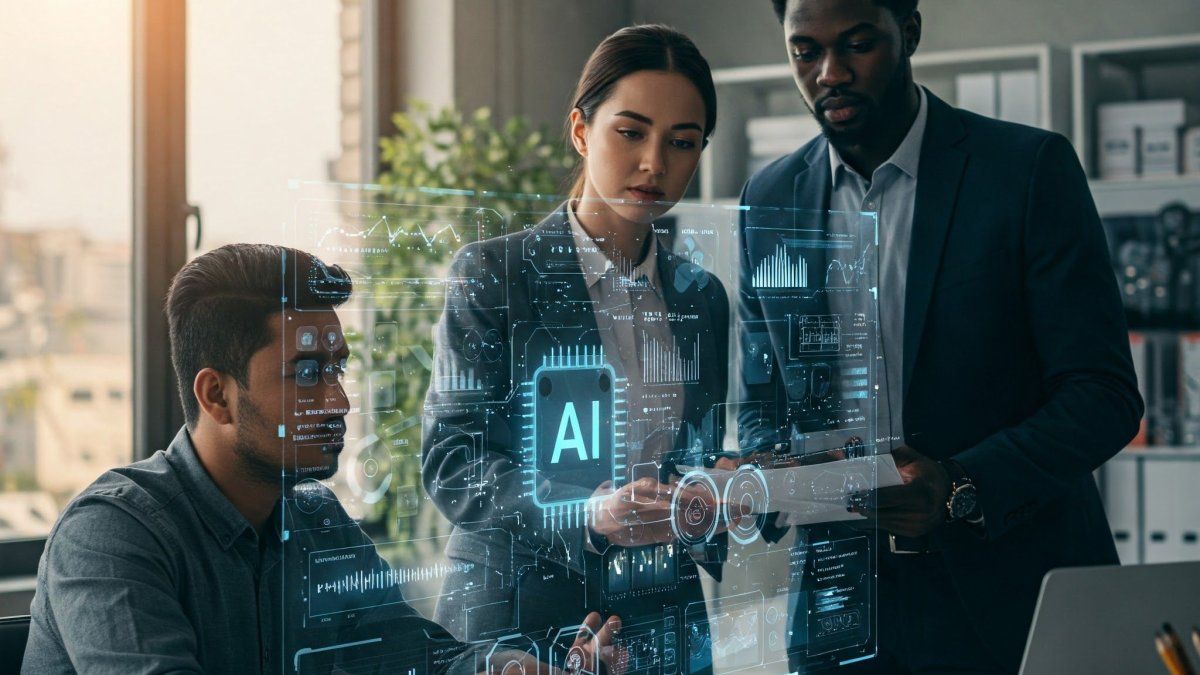As human management professionals, we are in the epicenter of this transformation, dealing not only with technological transformation, but also with the growing concern about short -term changes that will directly impact our area and in the lives of people in organizations. Reflecting on these challenges is essential to adapt and lead this new era.
Understand the Ia In our context it implies mastering some key concepts. In essence, we talk about the simulation of human intelligence processes by computer systems. In this sense, Machine Learning allows us to learn from the data to identify patterns without explicit programming, which is invaluable to analyze hiring records and predict which candidates will have greater success. In addition, natural language processing enables machines to understand, interpret and generate human language, something crucial for employee chatbots, feedback analysis and automated interviews.
The evolution of the use of AI in human resources has been progressive. We pass from Traditional systems to automate basic administrative tasks (payrolls, records) between 1980 and 2000, to the appearance of first analytics based on data for reports and trends between 2000 and 2010. The arrival of the Big Data between 2010 and 2015 allowed deeper analysis and the first predictive tools. But today (the present 2015) finds us in Advanced AI domainwith complex algorithms, constant learning and integration with other technologies.
P19 – Depositphotos_19_op.jpeg
Jobs New works are changing labor dynamics and generating opportunities that did not exist.
This “silent revolution” in the work environment has first manifested itself in the automation of repetitive tasks, freeing our human resources staff (and others) to spend time to more value work. Then, we saw how the analysis of large volumes of data generated insights that previously required weeks of human work. More recently, virtual attendees handle complex interactions with employees and customers, and the AI even ventures into the generation of content, code and designs.
Far from eliminating roles, The AI has allowed the emergence of new professions, as specialists in ethics of AI or managing man-machine integration. It has also valued hybrid profiles that combine technical skills with the ability to humanize technology. We have witnessed successful integrations: medical centers that use AI for diagnoses, allowing doctors to spend more time to empathic communication; banks that use AI to give information and recommendations to advisors, improving human interaction instead of replacing it; and industries that use robotics for demanding physical tasks, leaving humans quality control and creative supervision. These examples show us that AI can be a tool to enhance the human.
It will be key, then, that we advance towards Regulatory frameworks that accompany innovation, including independent audits and ethical certifications for algorithms that influence the working life of millions of people.
Achieving a successful transition requires active collaboration between governments, companies, educational institutions and civil society. Each actor has a responsibility to consciously design the relationship between humanity and technology. Our goal should not simply automate by automating, but to release human potential for significant activities, while the machines are responsible for the routine.
The AI offers powerful tools to optimize human management, from the attraction of talent to the improvement in climate management and interaction with employees. The benefits in efficiency and analysis are undeniable. But we cannot be naive before ethical risks and biased perpetuation. True success will lie in finding the right balance, using AI to enhance our abilities, promoting irreplaceable human skills and ensuring that technology serves to build a more fair, inclusive and focused work future work. This is our great challenge and our great opportunity as experts in human management today.
*The author is CHief People Officer of Visma Latam, reference in talent strategy, leadership development and organizational culture in technology companies in Latin America.
Source: Ambito
David William is a talented author who has made a name for himself in the world of writing. He is a professional author who writes on a wide range of topics, from general interest to opinion news. David is currently working as a writer at 24 hours worlds where he brings his unique perspective and in-depth research to his articles, making them both informative and engaging.




